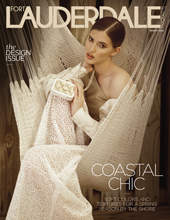In one of the hottest brewery taprooms in the area, the game is on the TV sets, bartenders pull from Buddha beer tap handles, friends challenge each other to rounds of cornhole in the game room, and a crash of giant Jenga pieces crumbles to the floor.
Next door, Alberte’s Restaurant serves up authentic Caribbean cuisine. Across the street, hipsters wait their turn to play the favorite video games from their childhoods at video game bar Tenth Level Tavern. A couple blocks down the road, a server presents a plate of fried chicken at Kelvin 3200.
After a week of work, this crowd has chosen to spend their night in Oakland Park. Not Himmarshee, not Las Olas, not Beach Place.
“A couple of years ago, I was getting a lot of phone calls from different people who wanted to do stories, whether it be print or otherwise,” says Kathleen Margoles, Oakland Park’s community and economic development director. “I remember this one guy said to me, ‘When I was a kid, my dad used to take me out there on the weekends to buy hardware and parts in the warehouse in Oakland Park, and now I go and drink beer in one of the coolest places.’ To me, that really exemplified the change and it has been fast.”
A city of nearly 44,000 residents, its 8 square miles sits wedged between Fort Lauderdale and Pompano Beach. Founded in 1925 as the town of Floranada, it had its early ups and downs until locals decided to rename the town to Oakland Park and revitalize the neighborhood. For years it was seen as a place one had to drive through to get to the highway; a sleepy, blue-collar suburb featuring functional, unglamorous retail. Memories abound of it being one of the last farming communities on the east side of Broward County. Now however, the modest city is putting itself on the map in a different way.
When it comes to attracting new business and development, the city has a few things going for it. Rents are low compared to neighboring Fort Lauderdale and Wilton Manors. Four incentive programs for businesses in the city’s Dixie Highway “downtown” have helped draw small businesses to its Culinary Arts District. The programs are generous, including paying up to 80 percent of a business’s facade upgrade, development assistance, relocation assistance and expedited permitting.
Oakland Park is now putting itself on the map with its growing culinary scene, events and alluring storefronts for small businesses. New residential developments are following, including several higher-density, walkable projects aimed at young professionals looking to pay less than they would in Flagler Village or along Wilton Drive.
“Oakland Park to me was always just this uncovered gem,” says Ramy Boorom, a partner behind Urbn Village, one of those projects. “It’s not a cement sidewalk community, it’s not a bedroom community, it’s going to be a true community where you really don’t have to leave Oakland Park … that’s why I really love it.”
Funky Buddha now serves as the de facto capital of this new Oakland Park, drawing thousands to their anniversary block parties, keg taps and community events. KC Sentz joined the Funky Buddha venture in 2012 when his brother, Ryan, was looking to expand its original Boca Raton lounge. The two searched for six months from North Miami all the way up to West Palm Beach for a space that could accommodate their plans to open a brewery and taproom.
While searching online one night, Sentz came across a presentation that a firm had made to Oakland Park in its quest to revitalize downtown. He was drawn to the plan and eventually took a virtual tour of the city by way of Google Maps. As he “walked” through the streets, he saw a for sale sign at an old warehouse. He called for more information the next day, and soon word was buzzing through the grapevine that Funky Buddha would be coming to Oakland Park.
“We needed space, we needed affordability, parking was a huge plus, and we also were looking for something that had some sort of retail-esque kind of environment,” Sentz says. “We needed the space for manufacturing, so we wanted room to grow into as well. A lot of breweries experience during growth that they run out of room.”
And do the Sentz brothers have room — their plans were originally to open a 4,000-square-foot space, but now their business sits on 115,000 square feet with a lounge, restaurant, game room, patio, and brewery. At the time, some scratched their heads wondering why they would open in such a strange place — Oakland Park?
But the brothers weren’t deterred, and instead saw promise and potential.
“We were OK being the first, especially since it had the attributes we were looking for, like the parking and the space and the affordability,” Sentz said. “It was OK for us to take a gamble and take a shot at it.”
As much as it may seem like it, the development of the downtown area didn’t happen overnight. The seeds were sown in 2005 when Oakland Park put forth a plan to turn the downtown area into a burgeoning center of activity. The city shelved the idea during the recession, then revisited it in 2011. A consultant was hired, and the Culinary Arts District along Dixie Highway was branded.
“There’s a lot of culinary talent locally…Things are looking up for Oakland Park.”
Two years later, Funky Buddha opened its doors to the public. From there, other businesses followed. In 2015 the diet food delivery service DeliverLean, after searching for a central location in South Florida, relocated its headquarters from Palm Beach County to the space next door to the iconic Hugh’s Culinary. With it came 150 employees.
“There’s a lot of culinary talent locally, and because it’s so centrally located, it’s really easy to get to,” says Scott Harris, the CEO of DeliverLean. “Things are looking up for Oakland Park.”
In October 2015, the unique video game bar Tenth Level Tavern opened across the street from Funky Buddha; there, patrons can battle to save Princess Peach in rounds of Super Mario or duke it out in the ring in Street Fighter while sipping on pints. Allied Kitchen & Bath purchased a block to open its showroom in April. At the end of May, SwitchBox Coffee Roasters opened to much fanfare and lines out the door all day.

With the likes of Alchemist, Warsaw Coffee and Panther Coffee drawing customers to smaller, local businesses, the timing seemed good. His original plan was to open in Delray Beach or West Palm Beach, but the building options weren’t great and the rent prices were out of reach.
Then came Oakland Park.
“We actually came down here to Funky Buddha brewery, and we were just sitting there having some pints and overheard some people talking about the Culinary Arts District,” Protsman says.
Inside their shop, the Protsmans put together a cozy lounge with reclaimed wood from a North Carolina barn turned into impressive pieces of farm-meets-industrial furniture, made by Miriam’s master carpenter brother. An artist herself, she created a mural for the store, and the couple hopes they can showcase more works by local artists.
“I can’t believe we settled in Oakland Park, but I’m glad we did,” Protsman says. “The city’s been great, the mayor, the [Community Redevelopment Agency] — the neighborhood behind us, most of them are regulars here, they’re really supportive. We couldn’t have asked for a better scenario.”
But it’s not just the food-and-beverage industry that will keep Oakland Park’s buzz going — other ventures are moving into town.
On land that used to be a recycling facility, the affordable and hip Urbn Village is rising up on the Northeast Fifth Avenue and Northeast 36th Street. With units starting in the low $200,000 range, Urbn Village has four different floor plans from townhomes to courtyard properties with two-car garages and industrial lofts you’d normally find up north. Even better, the village will be completely pet friendly with no weight restrictions.
“The whole concept of the project is to provide neighborhood housing for the neighborhood,” says Ramy Boorom, one of the partners behind the project.
And more is coming, both in retail and residential. Just north of Funky Buddha on Dixie Highway, the Eastside Village townhome community occupies land that some might remember as one of the last eastside parcels to house cows. The brains behind Tap 42 in Fort Lauderdale have plans to open a gym and food concept; the Asian tapas restaurant, Dapur, is relocating after its original location caught fire in November 2015. Also, there’s also been a big push to invite the arts into the city.
“I think once the artists come in and take over [the]neighborhood it becomes more of a trendy, go-to place by nature,” Protsman says.
Oakland Park is launching a public arts program and has chosen an artist to design art to wrap the city’s utility boxes. Already, a large mural of bass guitar legend and Oakland Park native Jaco Pastorius overlooks the park named for him. The park, which sits next to Funky Buddha on Dixie Highway, is home to the annual brewery-sponsored Oktoberfest as well as other community events. In November, arches of water were unveiled at the entrance of the park.
Squires Plaza at Dixie Highway and 34th Court was in bad shape, but was purchased by attorney Robert Roselli, who fixed up the facade, renamed it Art Park, and is now renting it out to businesses. The spot was also chosen to be a mural site – two hands clasping a mound of earth – during Broward County’s 100th birthday celebrations in 2015.
In January, the city is launching Dancing in the Streets, a larger version of Music on Main. Also, from January to April, the Culinary Arts Showcase invites foodies to a four-course meal from different local chefs. On Feb. 17, the very first wine and food festival will take place. The joint effort by Oakland Park and Wilton Manors has been dubbed “OP Not SoBe”.
On the fourth Friday of the month, Music on Main Street takes over, turning the steps of City Hall into a stage for live bands where in addition to the music, revelers can have dinner from food trucks. When freight trains rumble down the tracks, the bands playfully switch over to a locomotive song.
In fact, Oakland Park could become a new passenger train stop. Track improvements are now being made for the Brightline regional rail link from Miami to Fort Lauderdale, West Palm Beach, and eventually Orlando. While that train will not stop at smaller cities, the South Florida Rail Transportation Authority, which oversees Tri-Rail, is also eyeing the tracks for its planned Coastal Link. The agency is considering a station at 38th Street, near city hall and Funky Buddha. So far, there is no anticipated date that final decisions will be made.
“It’ll be fantastic because it will bring people who want to live close to transit, somebody who would rather hop on a train to get to work in West Palm Beach or even in Fort Lauderdale for that matter, people who are used to having transit available to them,” Margoles says.
Clearly, anyone still thinking of Oakland Park as a quiet little city hasn’t stepped foot in it recently.
“Things have really picked up over the last three years and will continue,” Margoles says. “I tell people now, you will not recognize downtown Oakland Park in five years.”








